GENEVA (26 February 2020) - The UN Special Rapporteur on the situation of human rights in North Korea, Tomás Ojea Quintana, has urged North Korea and the international community to join forces to prevent a COVID-19 outbreak in the country.
The Special Rapporteur supports the efforts taken by the authorities to prevent an outbreak, including strict controls on entry into the country and seeking assistance from UN agencies.
“The outside world should be prepared to respond, and the Government of the Democratic People’s Republic of Korea should allow full and unimpeded access to medical experts and humanitarian actors, and relax restrictions on access to information,” said Ojea Quintana. “Further isolation of the country is not the answer.”
To date, no cases of COVID-19 have been officially confirmed in the country.
Many North Koreans, in particular those living in rural areas, do not fully enjoy the rights to health, water and sanitation. Over 43 percent of the population is undernourished. Half of education and health facilities lack adequate water and sanitation facilities. Combined with a limited access to information, this makes them even more vulnerable to COVID-19, said Ojea Quintana.
The current threat from COVID-19 confirms that the human rights of North Koreans cannot be put on hold until political agreements are made, the Special Rapporteur said.
The Special Rapporteur reiterated his earlier calls to review the sanctions against North Korea and study their detrimental impacts on North Korea’s human rights situation. He noted that humanitarian organizations in the country need to receive permission to import life-saving and seemingly innocuous supplies, such as water filters, hygiene kits and funds for digging wells.
“The COVID-19 crisis, as severe as it is, is also an opportunity to initiate close cooperation between Democratic People’s Republic of Korea and the international community towards common goals,” Ojea Quintana concluded.
ENDS
Mr. Tomás Ojea Quintana (Argentina) was appointed as the Special Rapporteur on the situation of human rights in the Democratic People's Republic of Korea by the Human Rights Council in 2016. Mr. Ojea Quintana, a lawyer with extensive human rights experience, worked for the Inter-American Commission of Human Rights, and represented the Argentinean NGO 'Abuelas de Plaza de Mayo' in cases concerning child abduction during the military regime. He is a former Head of OHCHR's human rights programme in Bolivia, and served as the UN Special Rapporteur on the situation of human rights in Myanmar from 2008 to 2014. His mandate has most recently been renewed by Human Rights Council resolution 40/20.
The Special Rapporteurs are part of what is known as the Special Procedures of the Human Rights Council. Special Procedures, the largest body of independent experts in the UN Human Rights system, is the general name of the Council's independent fact-finding and monitoring mechanisms that address either specific country situations or thematic issues in all parts of the world. Special Procedures' experts work on a voluntary basis; they are not UN staff and do not receive a salary for their work. They are independent from any government or organization and serve in their individual capacity.
UN Human Rights, country page: DPRK
OHCHR Seoul Office
For more information and media requests please contact: Ms. Madoka Saji (+82 10-4230 3523 / msaji@ohchr.org)
For media inquiries related to other UN independent experts: The Media Section (+ 41 22 928 9855 / xcelaya@ohchr.org)
